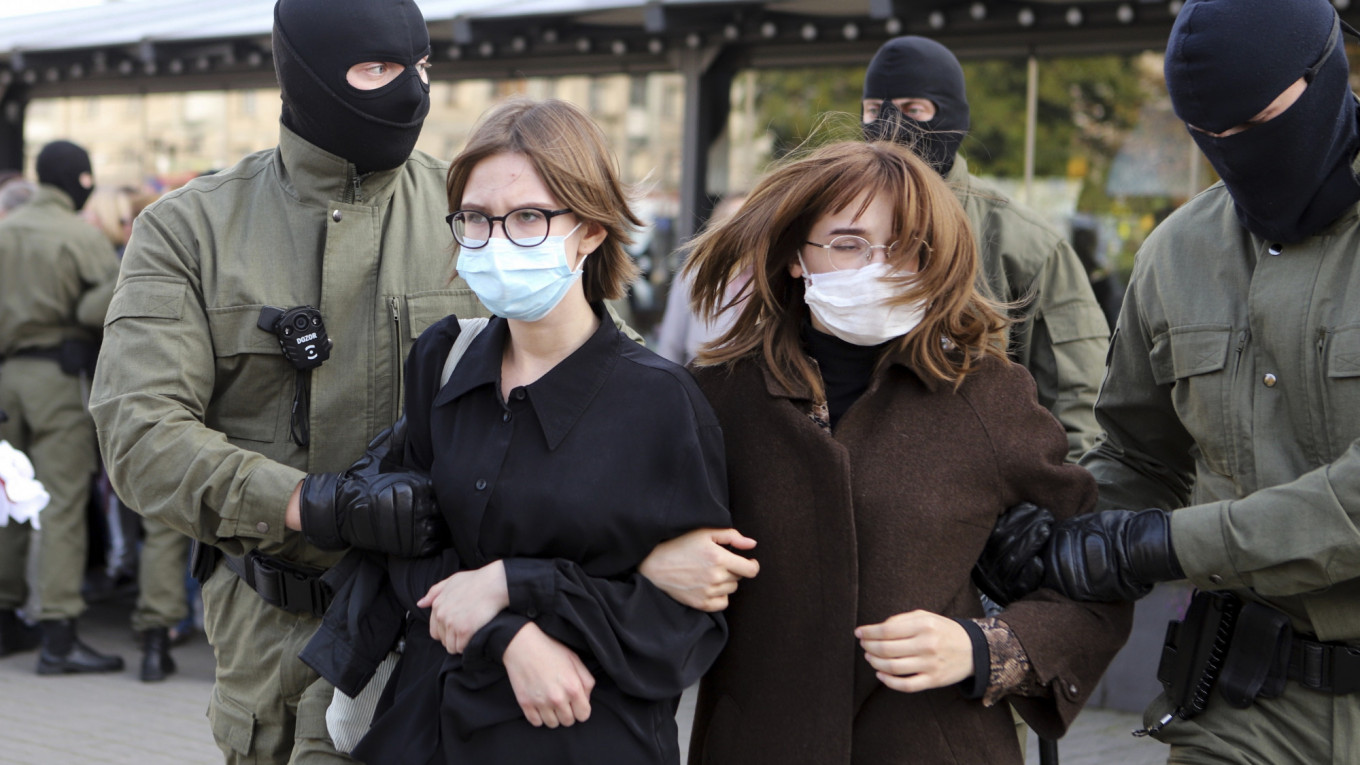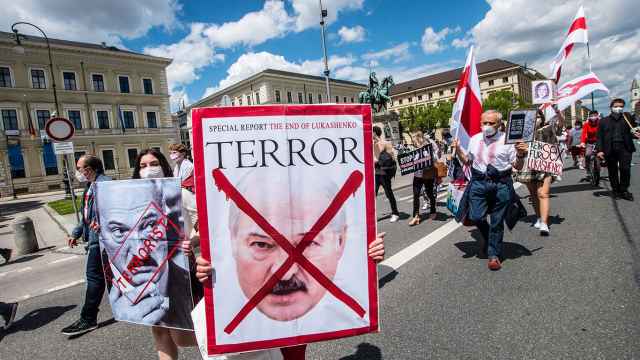Riot police on Saturday detained hundreds of women, dragging many into vans, as opposition protesters marched through the Belarusian capital Minsk demanding an end to President Alexander Lukashenko's rule.
The women were seized by riot police in black uniforms and balaclavas as well as officers in unmarked khaki uniforms and plain-clothed officers in face masks.
Police blocked the women and began pulling them into police vans as they stood with linked hands, swiftly detaining hundreds, an AFP journalist saw. Police lifted some women off their feet in order to remove them.
Around two thousand women took part in the "Sparkly March", wearing shiny accessories and carrying red-and-white flags of the protest movement.
The march was the latest in a series of all-women protests calling for the strongman to leave following his disputed victory in elections last month.
His opposition rival Svetlana Tikhanovskaya also claimed the victory.
Alleged police violence and torture of detainees following the elections have prompted the European Parliament to call for sanctions against Lukashenko and other members of his regime.
Protest with 'woman's face'
In a statement released ahead of the march, Tikhanovskaya, who has taken refuge in Lithuania, praised the "brave women of Belarus".
"They are marching despite being constantly menaced and put under pressure," she said.
The marchers chanted slogans such as "Get out, you and your riot police!" and "We believe we can win!"
One of the placards read: "Our protest has a woman's face," a reference to the title of a popular book by the Belarusian Nobel prize winner Svetlana Alexievich, who has backed the opposition cause.
Among those detained on Saturday was Nina Baginskaya, a 73-year-old activist who has become one of the best-known faces of the protest movement, known for her plucky antics and regularly celebrated with a chant of "Nina! Nina!".
Police took away the flag and flowers she was carrying as they pushed her into a van but released her outside a police station shortly afterwards.
Police detained so many protesters that they ran out of room in vans, releasing around 10 women.
Some women managed to run away and took shelter in a nearby nail bar, Tut.by news site reported.
Ambulances were called after several women became unwell during the detentions. The Belarusian Association of Journalists said that a journalist had been detained and had his nose broken.
Viasna rights group released an online list of names of 217 women detained in Minsk, saying the list was being updated.
Police have not yet given a number of detained.
The protest came as the opposition is due to hold mass demonstrations on Sunday and Tikhanovskaya will meet European Union foreign ministers and the bloc's diplomatic chief in Brussels on Monday.
The women's protests began in Belarus after Lukashenko's use of extreme violence against detained demonstrators.
Women began forming human chains and marching through Minsk and other cities wearing white clothes and carrying flowers in peaceful demonstrations that police initially allowed to go ahead.
Last weekend, police violently detained several dozen at a similar women's protest.
Lukashenko last week warned of a possible "war" with some neighboring countries and has turned to Russia for support after refusing to step down.
A Message from The Moscow Times:
Dear readers,
We are facing unprecedented challenges. Russia's Prosecutor General's Office has designated The Moscow Times as an "undesirable" organization, criminalizing our work and putting our staff at risk of prosecution. This follows our earlier unjust labeling as a "foreign agent."
These actions are direct attempts to silence independent journalism in Russia. The authorities claim our work "discredits the decisions of the Russian leadership." We see things differently: we strive to provide accurate, unbiased reporting on Russia.
We, the journalists of The Moscow Times, refuse to be silenced. But to continue our work, we need your help.
Your support, no matter how small, makes a world of difference. If you can, please support us monthly starting from just $2. It's quick to set up, and every contribution makes a significant impact.
By supporting The Moscow Times, you're defending open, independent journalism in the face of repression. Thank you for standing with us.
Remind me later.






